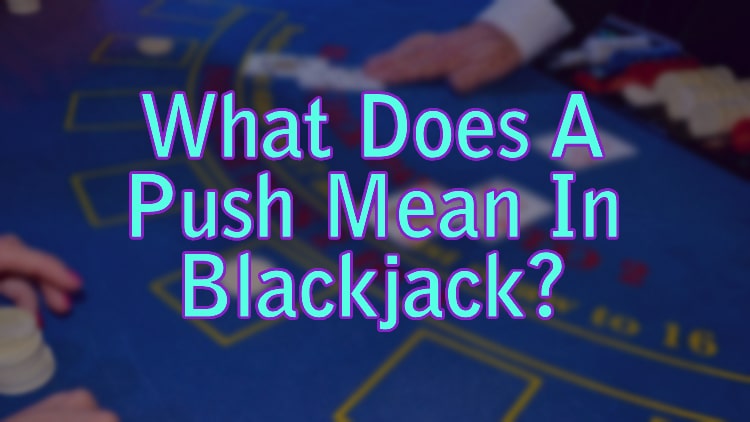
Welcome to Mega Reel and our guide to blackjack terminology. Today, we're going to be diving specifically into one of the essential concepts you'll encounter at the blackjack table: the "push."
A push occurs when your hand value equals the dealer's, resulting in a tie where no money is won or lost. Intriguingly, some blackjack games declare that a total of 22 is always a push, defying the usual bust rules. Additionally, we'll explain the value of a King in blackjack, helping you understand how these cards can shape your strategy.
Join us as we unpack these rules to help deepen your understanding of this iconic table game.
How Does A Push In Blackjack Work?
In blackjack, a "push" happens when the total value of your cards equals the total value of the dealer's cards. This scenario leads to neither a win nor a loss. Instead, the game results in a tie, and your bet is returned to you.
Here's how it typically unfolds: if you and the dealer both have card totals of, say, 18, the round will end in a push. You won't receive any winnings, but you'll get back the amount you originally bet. This rule ensures that if you can't beat the dealer, but the dealer also doesn't beat you, the outcome is neutral.
Understanding pushes is crucial because they affect your strategy. Recognising a potential push scenario might influence whether you decide to "hit" (take another card) or "stand" (keep your current hand), aiming to either avoid a loss or push for a win.
How Is 22 Always A Push?
In traditional blackjack, if your card total exceeds 21, it's called a "bust," which means you automatically lose. The same goes for the dealer. However, in some blackjack variations, there's a unique twist: a total of 22 doesn't result in a bust but instead leads to a "push".
This rule applies only to the dealer's hand. If the dealer's card total reaches 22, it's not a win for the player; instead, it results in a push against any player who hasn't already busted or doesn't have a blackjack (an Ace combined with a 10, Jack, Queen, or King). This rule changes the game dynamics significantly and can affect players' strategies. It adds an extra layer of safety for the dealer, knowing that a dealer's 22 doesn't lead to them going bust as it would for the player.
What Is A King Worth In Blackjack?
In blackjack, understanding the value of cards is crucial, and the King is particularly straightforward - it's worth 10 points. This rule applies not only to the King but also to all face cards, so this includes the Queen and Jack.
Regardless of suit, all face cards (J, Q, K) will always count as 10 points. This simplifies the game for beginners, as remembering the value of these cards is easy.
Knowing that these cards contribute a significant point value can help you make more informed decisions about whether to "hit" (take another card) or "stand" (keep your current hand).
Conclusion
To summarise, a "push" occurs when your card total matches the dealer's, resulting in a tie where your bet is returned. Some variations of blackjack introduce a special rule where a dealer's total of 22 results in a push instead of them going bust. Lastly, all face cards - including Kings - are valued at 10 points, simplifying the game and helping you strategise effectively.
With these foundational concepts, you're now better informed on this matter for your time at the blackjack table, and it could potentially help you make better-informed decisions during play.
Please gamble responsibly. Remember that winning is never guaranteed, so stick to a budget and never chase your losses.
*All values (Bet Levels, Maximum Wins, etc.) mentioned in relation to this game are subject to change at any time. Game features mentioned may not be available in some jurisdictions.
